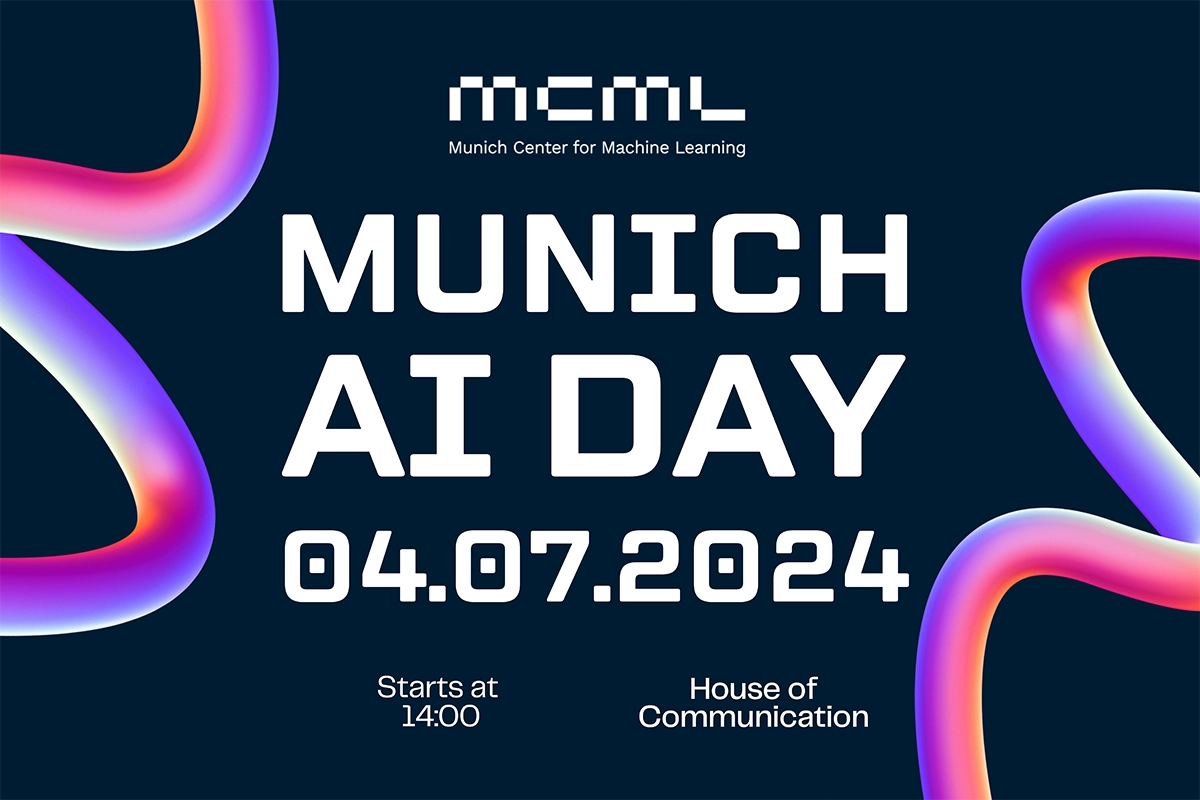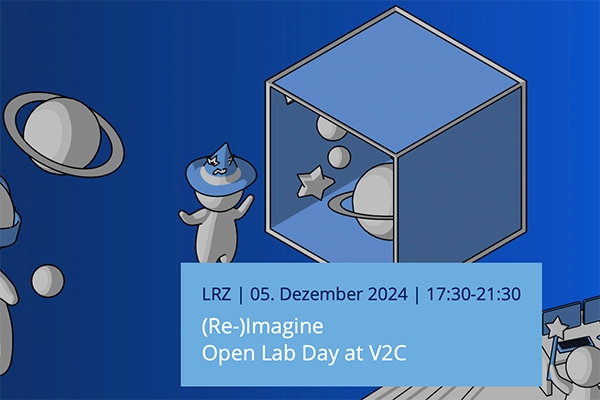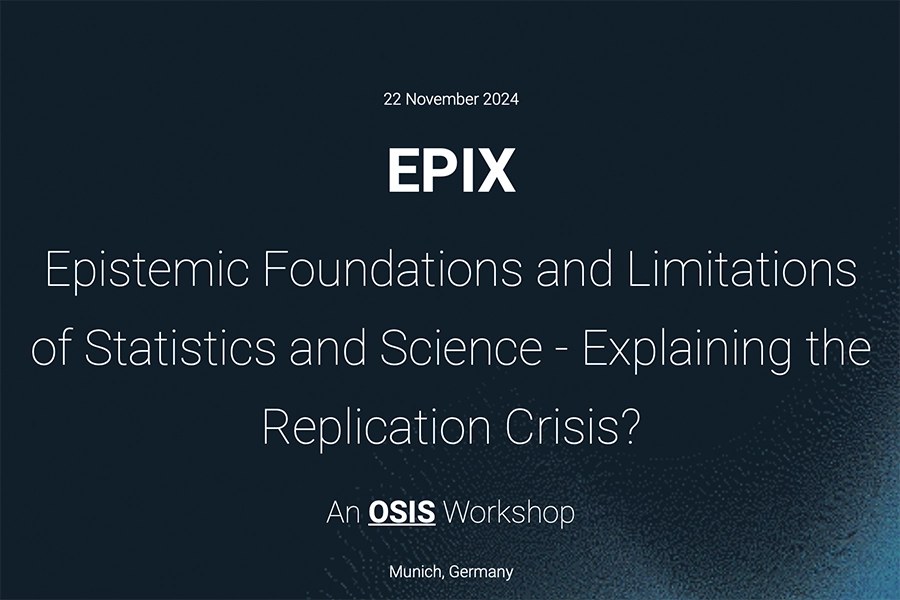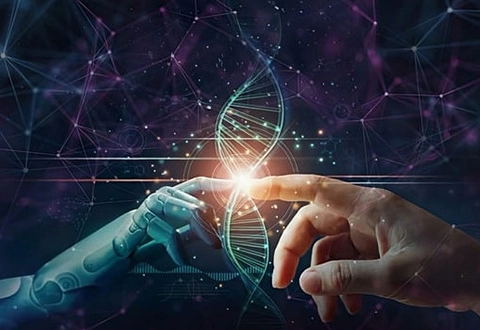04
Jul

Summit
Munich AI Day 2024
MCML celebrates first summit
04.07.2024
2:00 pm - 8:00 pm
House of Communication, Friedenstraße 24, 81671 Munich
What does the future of Artificial Intelligence (AI) look like and what are new developments in research? Outstanding national and international AI scientists and decision-makers from politics, business and the media will come together at this year’s Munich AI Day 2024 to shed light on these and other questions.
The aim of the summit, organized by the Munich Center for Machine Learning, is to discuss the potentials of AI in different fields. In addition to panels and discussions, the Munich AI Day offers numerous keynotes from science and industry, presenting the latest developments and innovative solutions.
The event is fully booked! Registration closed!
LIVESTREAM of the Munich AI Day 2024
Not there this year? Don’t worry, we’re streaming the event live. Streaming is available here
Agenda
Host | Larissa Holzki, Handelsblatt |
|---|---|
14:05 | Welcome Address Thomas Seidl and Daniel Rückert, Directors MCML |
14:15 | Welcome Address
|
14:25 | Introductory Keynote StM Markus Blume, Bavarian Minister for Science and Arts |
14:35 | Welcome Address Tina Klüwer, BMBF |
14:40 | Panel Discussion on the Future of AI
|
15:20 | Coffee Break with Company Booths and Poster Session |
15:40 | Research Keynote Reading Minds & Machines Michal Irani, Weizmann Institute of Science
The answer to both of these intriguing questions is “Yes!” |
16:10 | Research Keynote Revolutionizing Medicine & Healthcare: 5 Key Ingredients and the Role of AI Mihaela van der Schaar, University of Cambridge / Alan Turing Institute In today's rapidly evolving world, technology is profoundly transforming healthcare. This talk will explore five key elements driving this change, focusing on how Artificial Intelligence (AI) can shape the future of medicine and healthcare.
|
16:40 | Research Keynote Overcoming the Training Data Bottleneck: Language Models are Effective Autodidacts Hinrich Schütze, LMU / MCML Humans can be effective autodidacts once they have a strong foundation in a particular area. The same turns out to be true for Large Language Models (LLMs) - even though the idea of an LLM training itself may seem suspect at first. However, a naive approach results in so-called model collapse. We will discuss the general principles of successful "self-training" and apply them to the case of improving an LLM's capability to produce long form content. Our evaluation shows that our synthetically generated dataset is superior to existing manually constructed instruction tuning datasets. This approach is promising for many skills and domains for which training data are sparse and too expensive to generate manually. |
17:00 | Break |
17:15 | Research Keynote Deep Learning with Graphs Stefanie Jegelka, TUM / MCML Data in form of graphs occurs in many applications, including network analysis, recommendation, physics, chemistry, biology and drug design, and AI for optimization. With the success in many applications come further open questions, about modeling, stability and transferability of such models. This talk will summarize some recent research questions and results in these directions. |
17:35 | Industry Keynote Neural Representations for Real World 3D Scene Understanding Federico Tombari, Google The use of neural representations in computer vision research has recently grown tremendously. While Neural representations are now making their way to real products, some significant gaps still exist that limit their applicability in real world scenarios. In this talk I will illustrate some our recent research work aimed to fill such gaps, with a focus on 3D scene understanding and for common tasks such as novel view synthesis, 3D semantic segmentation and 3D asset generation. For each of these three tasks, I will first highlight some important practical limitations of current neural representations. I will then show solutions leveraging neural representations to overcome such limitations, which include high fps novel view synthesis, open set 3D semantic segmentation and realistic 3D asset generation from text prompts. |
17:55 | Closing Remarks Bernd Bischl, Director MCML |
18:00 | Reception and Networking with Finger Food and DJ F.R.A.N. from Wut-Kollektiv |
Organized by:
Munich Center for Machine Learning
Related

©LRZ
Open Lab Day • 05.12.2024 • Leibniz-Rechenzentrum, Boltzmannstraße 1, 85748 Garching bei München
(Re-)Imagine
Students at the LRZ's Centre for Virtual Reality and Visualisation (V2C) will present their projects from this year's VR internship and final theses.

©LRZ
Workshop • 22.11.2024 • LMU Munich (near main building, details tba)
EPIX Workshop
Bringing together statisticians, philosophers of science, and other interested researchers to discuss aspects of Open Science and the replication crisis.

©Placidplace - pixabay.com
Bootcamp • 08.11.2024 - 09.11.2024 • LMU Main Building, Kleine Aula and RAW, Herzog-Wilhelm-Str. 15, 80331 Munich
3rd Bootcamp "AI meets Entrepreneurs"
The MCML is co-organizer of this two-part event to shift ML and AI researchers into an entrepreneurial mindset for the third time.

Workshop • 06.11.2024 • online
LRZ AI Training Series
The Big Data & AI team at LRZ offers a series of courses aiming at the needs and expectations of data analytics, big data & AI users at LRZ.

Workshop • 23.10.2024 • online
LRZ AI Training Series
The Big Data & AI team at LRZ offers a series of courses aiming at the needs and expectations of data analytics, big data & AI users at LRZ.